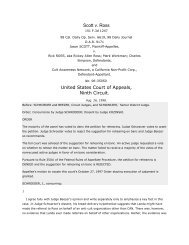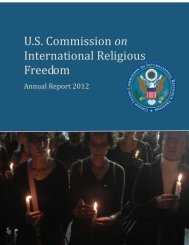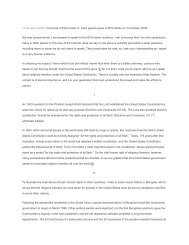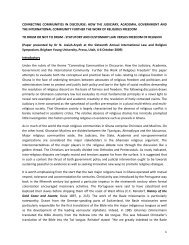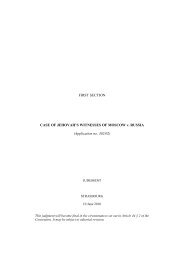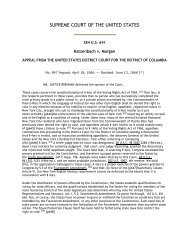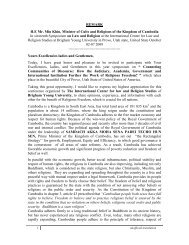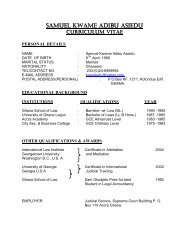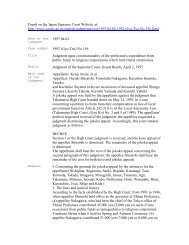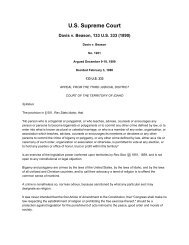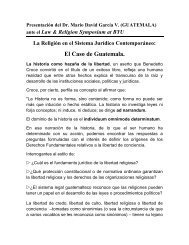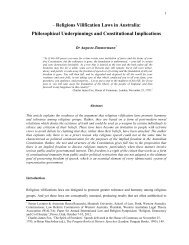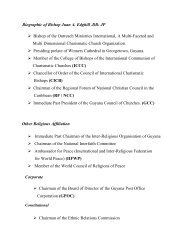Ruling (.pdf) - International Center for Law and Religion Studies
Ruling (.pdf) - International Center for Law and Religion Studies
Ruling (.pdf) - International Center for Law and Religion Studies
Create successful ePaper yourself
Turn your PDF publications into a flip-book with our unique Google optimized e-Paper software.
(2) that the employer adopted the particular st<strong>and</strong>ard in anhonest <strong>and</strong> good faith belief that it was necessary to thefulfilment of that legitimate work-related purpose; <strong>and</strong>,(3) that the st<strong>and</strong>ard is reasonably necessary to theaccomplishment of that legitimate work-related purpose. Toshow that the st<strong>and</strong>ard is reasonably necessary, it must bedemonstrated that it is impossible to accommodate individualemployees sharing the characteristics of the claimant withoutimposing undue hardship upon the employer.[167] Christian Horizons takes the position that the third branch of the Meiorin testdoes not apply under section 24(1)(a) <strong>and</strong> there is no requirement to establish that it isimpossible to accommodate individual employees without undue hardship. ChristianHorizons argues that it need only show it adopted the qualification in an honest <strong>and</strong>good faith belief that it is necessary in relation to the nature of the employment <strong>and</strong> thequalification is rationally connected to the nature of the employment in a general way. Italso argues that the words “nature of the employment” mean “nature of theorganization.” It relies on the Supreme Court of Canada decision in Québec(Commission des droits de la personne et des droits de la jeunesse) v. MaksteelQuébec Inc., [2003] 3 S.C.R. 228, in support of its claim that there is no duty toaccommodate under section 24(1)(a).2008 HRTO 22 (CanLII)[168] In Maksteel the Court was dealing with a provision of the Quebec Charter ofRights <strong>and</strong> Freedoms prohibiting employers from discriminating on the basis of acriminal conviction where the offence was unrelated to the per<strong>for</strong>mance of the job, orwhere a pardon had been granted. The employee was terminated <strong>for</strong> being absent as aresult of having been incarcerated. The question arose as to whether the Meiorinrequirement that an employer accommodate applied. The Court held (at para. 26):In the context of an independent justification mechanism beingprovided in s. 18.2 itself, the "reasonable accommodation"st<strong>and</strong>ard established in Meiorin in relation to bona fideoccupational requirements plays no role.[169] While the decision in Maksteel may be of some assistance to ChristianHorizons, in my view, what is determinitative is the language of section 24 taken as a49



